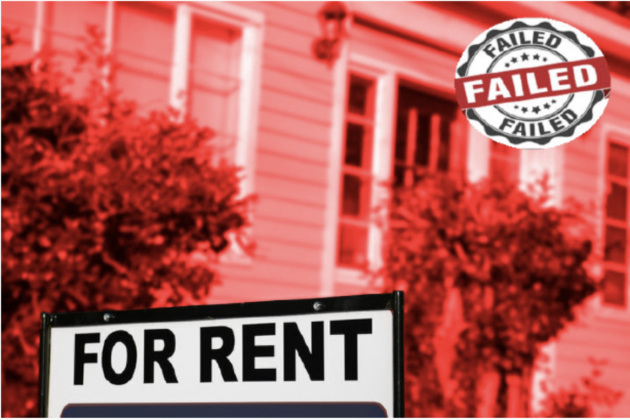If you don’t have a Silver level membership yet you are missing out on our Insight Politics articles and politicasts.
Today is a FREE taste of an Insight Politics article by writer Stephen Berry.

Rental WOF Will Be Block That Breaks Landlord’s Back
The Labour government flippantly promised to house all homeless people within four weeks in 2018. This, like so many of their other policies, was a complete failure because few of Labour’s ministers understand how to make the leap from passing regulations and allocating funding to spending the funds and the impact that regulations have on the bottom line of housing providers.
Since taking office in 2017, the Labour government has passed the following regulations on rental properties:
Rental Tenancies Act – effective August 2020
- Rent can only be increased every 12 months, up from six months.
- Letting fees abolished.
Effective February 2021
- Periodic tenancy can no longer be terminated without cause with 90 days’ notice.
- Minor alterations to properties must be agreed to within 21 days of making a request if the change is “minor”.
- Bidding on rental prices is prohibited. An advertised rental must have a rental price listed.
- All requests to assign a tenancy cannot be declined “unreasonably”.
- The Tenancy Tribunal can make awards of up to $100,000, up from $50,000 previously (in many cases these amounts go to the tenant).
Effective July 2021 for new tenancies or July 2024 – Healthy Homes Standards
- New insulation standards which are higher than those effective July 2019
- Heating standards
- Ventilation standards
- Moisture and drainage standards
- Draught stopping standards
I wrote an article on the additional costs these laws would put on my own tenancy in February 2020, which was $485 a week at the time. I determined that my own rent would increase $46.84 based on the measurable legislative impacts. Other new rules such as the requirement to plug “reasonably” sized holes in walls were not possible to measure, nor was the compliance with drainage rules which are highly variable.
When I left my unit in April 2021, I was paying rent of $500 a week which is pretty reasonable for a two bedroom unit in Central Auckland. During the final inspection, I was privy to the advice the property agent was providing my landlord. By the time we said our farewells, the landlord was contemplating a $100 a week increase in the rent for the next tenant.
These enormous increases in compliance costs aren’t enough for the Greens, who after all these regulations have been implemented, still advocate that a rental Warrant of Fitness be implemented as well. They say that this would cost, based on Research from the University of Otago, $150-$250 every three years. In 2017, a voluntary Warrant of Fitness scheme in Wellington cost $2,000 per Warrant of Fitness. Making a service compulsory usually increases the end cost to the consumer. Third-party car insurance in New Zealand is approximately a third cheaper than in the UK, which makes insurance compulsory. Moreso, when you consider it costs up to $60 for a warrant of fitness for your car – a process which will take less time and due to applicants bringing their car to the warrant issuer is a more efficient process – a ballpark figure of $250 for a rental WOF is naïve.
Chloe Swarbrick fronted the rental WOF policy again this week and, when challenged on the increased amount of bureaucracy, claimed that it was far more bureaucratic for tenants to take their landlords to the Tenancy Tribunal. That is a ridiculous claim. Compare tenants using their own initiative to apply for a hearing at the Tenancy Tribunal with rules requiring triennial inspections, checks that triennial inspections were occurring (or do tenants just take landlords to the Tenancy Tribunal?) and the administration of inspection processes which would be more cumbersome than vehicle WOF, and it’s clear that the status quo is less bureaucratic.
Swarbrick then changed tack, stating that minimum standards are unenforceable because they rely upon tenants taking their landlord to the tenancy tribunal, which is difficult for some people to do. Essentially the benefit of rental WOFs is that they are passive-aggressive; tenants can wait for someone else to check up on them every three years instead of using their own initiative. The number of cases that go to the Tenancy Tribunal overwhelmingly favour the tenant, and tenants are also able to obtain name suppression to avoid being blacklisted in the future.
Low-income families’ proportion of income spent on accommodation is at record levels: in some cases 55%. The value of land and housing is only going upward. New regulations on rental properties have demonstrably increased costs for landlords and therefore rents, plus the full costs imposed by all regulations passed to date won’t be visible until late 2024. To advocate for a rental Warrant of Fitness to be added on top of all these changes demonstrates just how out of touch Chloe Swarbrick is with reality.
If you enjoyed that FREE taste why not subscribe to a SILVER level membership today?
You will not only get access to Insight Politics articles like the one above and Cam’s politicasts but you will also gain access to all our puzzles, SonovaMin and BoomSlang’s fantastic cartoons, HangonaMin’s Satirical Woke Examiner and our private members’ forum MyBFD as well as enjoying ad-free viewing.
$25 a month ($6.25 a week) (89c a day)
$300 a year

